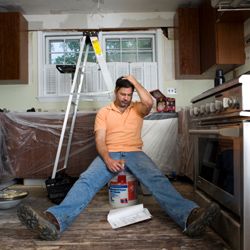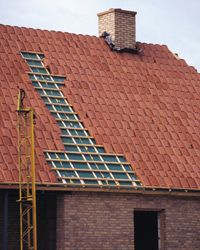"How hard can it be?" is the first question a daring do-it-yourselfer may ask when approaching a perceivably easy home repair. And many have found out the answer to this question the hard way. The DIY craze has been in full swing in the United States for a while now. With the Internet as our guide, it seems as though no job is too large for our capable hands. Virtually every kind of repair or renovation is explained in full online, many times with step-by-step video to go along with it. And in a time when every penny counts, paying a professional could mean dipping into your staycation fund. There are many home repairs and renovation jobs that someone with modest experience can try to tackle. So how do you know when you're being penny-wise versus pound foolish?
Ask any DIY enthusiast about the fun of a self-styled home renovation, and you'll likely be peppered with horror stories of cracked walls and wobbling floorboards. But walls that aren't plumb and floors that aren't level are far different than leaking ceilings or sparking outlets. Attempting certain repairs can be dangerous to your house and harmful to yourself.
Advertisement
We'll walk you through five jobs that you'd be better off to leave to a professional.


